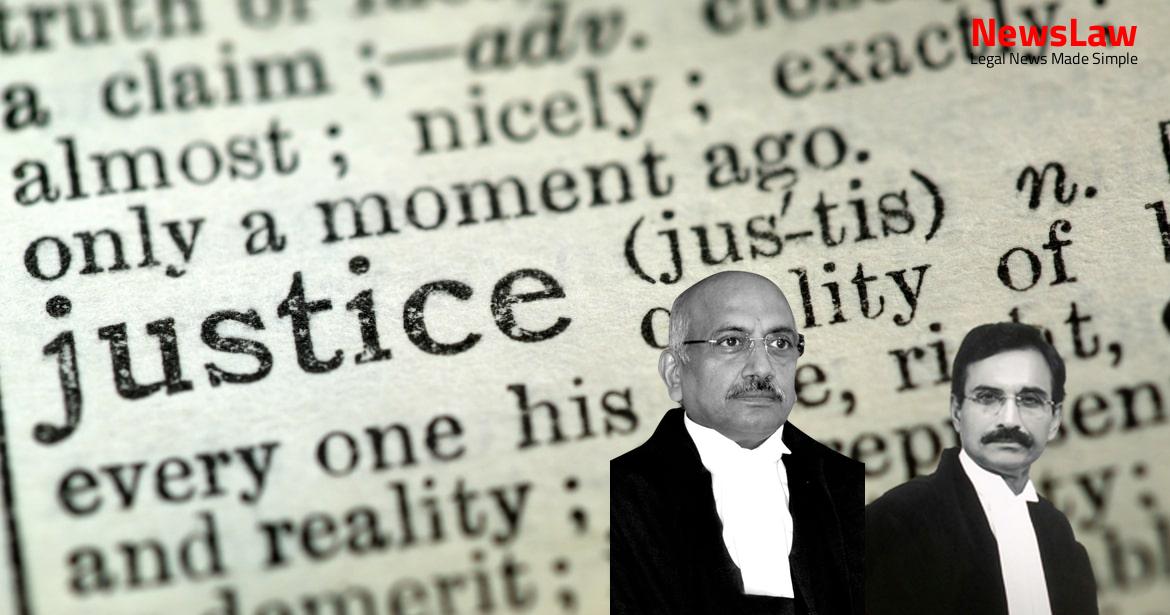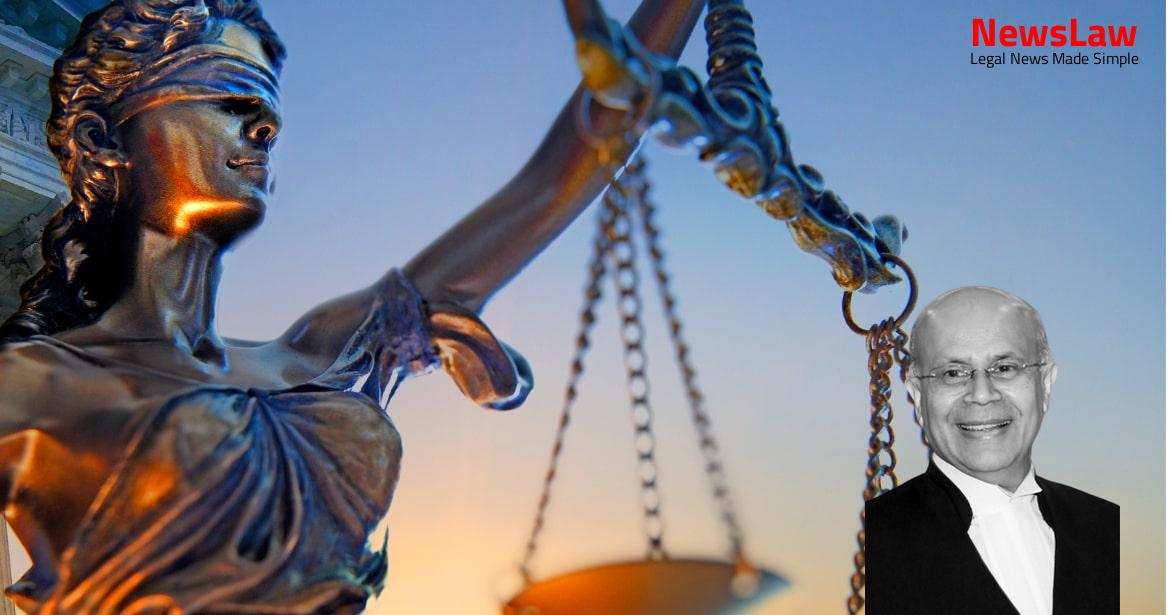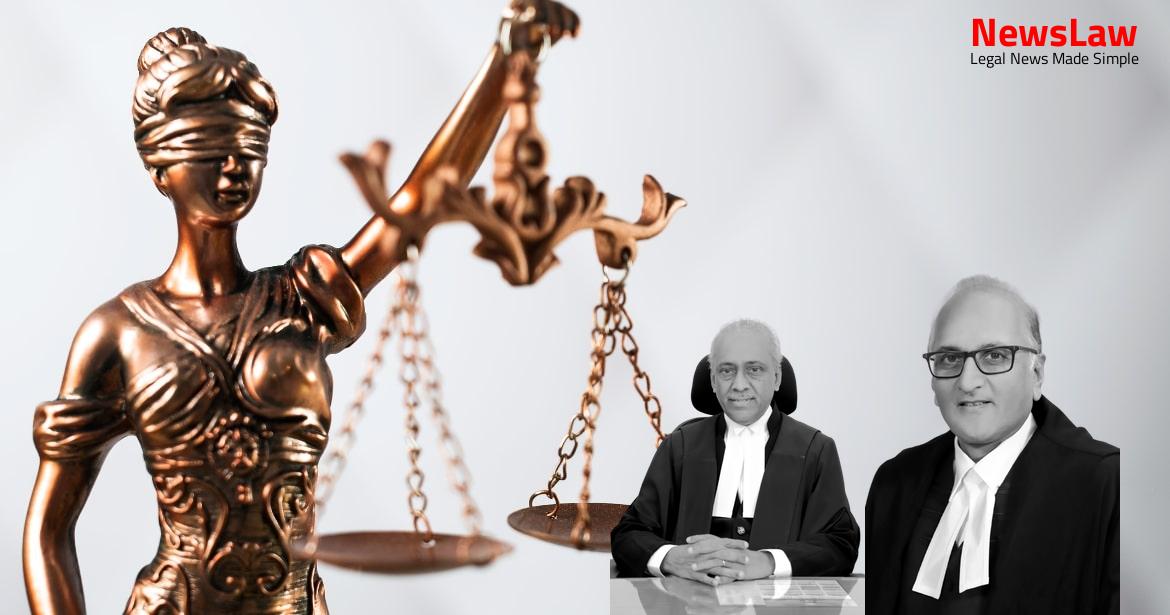In a significant legal case concerning Rule 180 compliance and military inquiries, the Supreme Court of India has emphasized the importance of ensuring fair trials. The ruling provides guidance on safeguarding the character and reputation of military personnel subject to the Act. This case sets a precedent for upholding the principles of justice and due process in military legal proceedings.
Facts
- The Respondent was enrolled as a Soldier in the 20 Jat Firing Team in 1999.
- A firing incident occurred on 02.10.2004 during practice at the Jat Regimental Centre, resulting in injuries and the death of Havildar Harpal.
- General Court Martial took place from 28.11.2005 to 16.03.2006.
- Statutory complaint rejected on 16.03.2007, challenging the non-compliance of Rule 180 of the Rules.
- Investigation initiated after a First Information Report was lodged at the Police Station, Sadar Cantonment, Bareilly.
- Direction for disciplinary action against the Respondent and counseling for another individual given by the General Officer Commanding.
- Additional summary of evidence recorded on 03.06.2005.
- Tentative charges of murder and attempting suicide were brought against the Respondent on 28.12.2004.
- Rule 180 of the Army Rules, 1954 mandates the presence of the person during an inquiry.
- The Tribunal found that the Respondent was not allowed to be present during witness statements at the Court of Inquiry.
- Due to the denial of presence during the inquiry, the Tribunal deemed the trial against the Respondent as vitiated.
- The General Court Martial convicted the Respondent for murder and attempting suicide.
- The Tribunal set aside the Court Martial’s order and remitted the case for a fresh trial from the stage of the Court of Inquiry.
Also Read: DHFL Moratorium: Depositor Rights & RBI Intervention
Arguments
- During the Court of Inquiry, there was no suspicion about Lt. Col. Prithi Pal Singh Bedi’s involvement in the death of Havildar Harpal.
- The doubt about Lt. Col. Bedi’s involvement arose only during his statement recording, transforming him from a witness to an accused.
- It was argued that witnesses whose statements were recorded in Lt. Col. Bedi’s absence should have been summoned and re-examined after his status changed.
- The scope and importance of Rule 180 in military inquiries were highlighted by referring to past judgments.
- The obligation to appoint a Court of Inquiry to safeguard the character and reputation of military personnel subject to the Act was discussed.
- The argument that there was no prejudice caused to Lt. Col. Bedi due to the non-observance of Rule 180 was presented.
- The Appellant contended that Lt. Col. Bedi was given opportunities to cross-examine witnesses and present a defense statement which he declined.
- No complaint was raised by Lt. Col. Bedi regarding the violation of Rule 180 and any resulting prejudice during the Court Martial proceedings.
Also Read: State of Karnataka v. [Respondent]
Analysis
- The proceedings of a Court of Inquiry or any confession, statement, or answer given in a Court of Inquiry are not admissible in evidence.
- The accused has the right to cross-examine any witness against him and to call witnesses for his defense.
- Rule 180 ensures that when the character or military reputation of a person subject to the Act is involved, full opportunity is given to the person to be present, make statements, and provide evidence.
- The presiding officer must ensure that the person affected by the inquiry understands his rights under Rule 180.
- The Tribunal has the power to order a re-trial by the Court Martial under specific grounds mentioned in Section 16(2) of the Armed Forces Tribunal Act, 2007.
- Proceedings of a Court of Inquiry are fact-finding inquiries conducted at a pre-investigation stage.
- Judicial review must ensure compliance with prescribed rules.
- Non-compliance of Rule 180 cannot be a ground for ordering a re-trial.
- Accused is entitled to full opportunity as per Rule 180.
- Final conviction is based on trial by Court Martial, and irregularities earlier cannot set aside its order.
- Recommendation of disciplinary action by Court of Inquiry is subject to judicial review if raised during charge framing or evidence recording.
- After the Court Martial’s final order, raising non-compliance of Rule 180 during the Inquiry stage is not permissible.
- The Tribunal lacks jurisdiction to remand proceedings before the Court Martial or direct re-trial unless new crucial evidence emerges.
- Tribunal’s competence for re-trial is limited to cases where unseen evidence affecting justice is presented instead of procedural violations.
- Setting up a Court of Inquiry is not always necessary whenever an inquiry involving a person subject to the Act is conducted.
- When character or military reputation of a person is likely to be affected in a Court of Inquiry, that person must be given a full opportunity to participate.
- Court of Inquiry is meant to examine general issues concerning a situation or persons.
- Procedural safeguards are in place to ensure a fair process for a person whose character and military reputation may be affected.
- Authorities must provide proper notice to the concerned person and allow them to cross-examine witnesses to ensure transparency.
- A Court of Inquiry may not always be an essential requirement for a court martial to be initiated.
- Proceedings before a Court of Inquiry are fact-finding in nature and not adversarial.
- If there is a violation of mandatory rules, the delinquent officer should benefit from it.
- Recording of evidence in a Court of Inquiry is to establish a prima facie case for convening a court-martial.
- The object and effect of the Rules should be considered in the context to determine if any incomplete compliance has prejudiced the delinquent officer.
- Adequate investigation is not jurisdictional for a Court Martial unless the accused can show prejudice or a mandatory provision has been violated.
- Meaningful and effective participation must be afforded to the delinquent officer in a Court of Inquiry where their character or military reputation is at stake.
- The Tribunal ordered a de novo inquiry from the stage of Court of Inquiry.
- The order for a fresh inquiry was deemed unnecessary and unjustified.
- The Tribunal’s decision was viewed as requiring to be set aside.
Also Read: Legal Analysis of Entrance Exam Regulations in AYUSH Courses
Decision
- The Tribunal’s order is set aside and the Transfer Application is remanded back to the Tribunal for consideration on its own merits.
- No observation made in the current judgement should influence the Tribunal’s consideration of the Transfer Application.
- The Respondent will not face imprisonment as he has already served a sentence of more than 10 years.
- The Appeal has been allowed in accordance with the above points.
Case Title: UNION OF INDIA Vs. EX NO. 3192684 W SEP. VIRENDRA KUMAR (2020 INSC 10)
Case Number: C.A. No.-009267 / 2019



